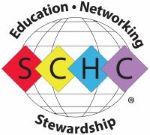 |
Society for Chemical Hazard Communication
Professional Development Training
|
Hazard Communication for Hardgoods (0.5-day)
Keywords: Thermal, mechanical, electrical, electromagnetic, and other hazards, Hazard and risk assessments, Safety instructions and manuals
Brochure — offered October 1, 2023
Course Description and Objectives
This course is designed to introduce the topic of Hazard Communication and Product Safety for hardgoods (e.g., hardware, furniture, appliances, toys, electronics, sporting goods, etc.). This course expands on the practice of chemical hazard communication to include thermal, mechanical, electrical, electromagnetic, and other hazards associated with hardgoods. Topics will include the tools and processes for conducting hazard and risk assessments and creating warnings, instructions, and manuals, as well as a cursory overview of related regulations, directives, standards, etc. This course, through lecture, discussion, and case studies, will provide participants with an understanding of hazards and risks associated with hardgoods, and processes for managing these hazards and risks.
Intended Audience
Hazard communication and stewardship professionals looking to gain an understanding of hazard communication and risk assessment as it pertains to hardgoods products.
Course Fee:
|
$275.00 Members // $405.00 Nonmembers |
Course Director / Instructor
|

|
Julia K. Diebol, Ph.D., CSP, C.P.S.M.
Dr. Diebol is a Managing Scientist in Exponent’s Human Factors practice, based in Bellevue, Washington. Dr. Diebol’s areas of expertise include human factors, product and occupational safety, and chemical hazard communication. She uses her expertise to evaluate the roles of warnings, instructions, risk communications, policies and procedures, standards, and regulations in safety and environmental health behaviors. Dr. Diebol's expertise has been applied to a broad range of consumer, occupational, and community settings. Dr. Diebol also provides expert analysis and testimony in cases involving product liability, occupational safety, personal injury, and toxic torts, among others.
As a Certified Product Safety Manager and a Certified Safety Professional, Dr. Diebol regularly evaluates product literature (warnings, instructions, user manuals, labels, safety data sheets, advertisements, instructional videos, etc.), as well as occupational safety management policies, programs, procedures, and training materials. She has experience evaluating compliance with a variety of regulatory requirements including those administered by the Occupational Safety and Health Administration (OSHA), Consumer Product Safety Commission (CPSC), Food and Drug Administration (FDA), Environmental Protection Agency (EPA), California Office of Environmental Health Hazard Assessment (OEHHA/Proposition 65), and other state, federal, and international regulatory bodies. She is authorized to teach both 10- and 30-hour OSHA General Industry Outreach Training classes. Dr. Diebol also has experience assessing conformance with industry and consensus standards by the American National Standards Institute (ANSI), International Organization for Standardization (ISO), National Fire Protection Association (NFPA), and others, including the ANSI Z535 series, ANSI Z400.1/Z129.1, and ISO 45001.
Based on her research and professional practice, Dr. Diebol has lectured at the University of Michigan and at national and international conferences on topics related to safety management, risk communication, chemical hazard communication, environmental health, and process safety. Prior to joining Exponent, Dr. Diebol was a safety and human factors consultant at a firm in Ann Arbor, Michigan, as well as an adjunct faculty member at the University of Michigan, teaching a senior-level engineering course in Product and Occupational Safety Management. From 2012 to 2017, she also taught a professional development course regarding human factors for chemical hazard communication in consumer and industrial settings. Dr. Diebol completed her undergraduate degree at the University of Michigan College of Engineering and conducted her graduate research in risk communication at the University of Michigan School of Public Health. Dr. Diebol currently serves as Past President and Professional Development Committee Chair of the Society for Chemical Hazard Communication.
|
Course Instructor
|

|
Chason J. Coelho, Ph.D., CSP, CFI
Dr. Coelho is a Principal Scientist in Exponent’s Human Factors practice, based in Bellevue, Washington. Dr. Coelho is a human factors, safety, and risk management professional with experience in several industries, including aviation, aerospace, on-shore and off-shore oil and gas, chemical, marine, mining, construction, manufacturing, utilities, and rail. Dr. Coelho addresses human performance in operations, maintenance, emergency, and consumer contexts. He also provides expert analysis and testimony in cases involving premises liability, personal injury, and product liability, among others.
Dr. Coelho conducts risk analyses aimed at reducing human error through incorporating human factors principles in design, policies, procedures, hardware, software, work environments, and team resource management. He also specializes in root cause analyses and incident investigations involving human performance gaps that lead to adverse events such as explosions, fires, chemical releases, and major equipment failures. Dr. Coelho holds a Certified Safety Professional designation from the Board of Certified Safety Professionals, a Certified Fire Investigator designation from the Texas Commission on Fire Protection, and a Safety Practice Certificate from Texas A&M University for advanced training in a variety of safety topics. Dr. Coelho is authorized to teach the 10- and 30-hour Outreach Courses in both OSHA General Industry and Construction Safety and Health Standards.
Prior to joining Exponent, Dr. Coelho did his doctoral research at Pennsylvania State University after completing an internship at the University of Chicago and an undergraduate program in learning, memory, and cognition at UCLA. He started his applied professional career as a human factors design engineer supporting the International Space Station Program at NASA Johnson Space Center.
|
Course Topics and Schedule
(Subject to Change)
Sunday, October 1, 2023
|
12:30 – 1:00
|
Registration
|
|
1:00 – 2:10
|
Introduction
Hardgoods and Hardgood Hazards
Product Safety and Compliance Overview
|
|
2:10 – 2:25
|
Break
|
|
2:25 – 3:35
|
Hazard and Risk Assessment for Hardgoods
|
|
3:35 – 3:50
|
Break
|
|
3:50 – 5:00
|
Warnings, Instructions, and User Manuals
Change Management Considerations
Case Studies
|
See brochure for Registration information, Cancellation Policy, Hotel Accommodation.
|







